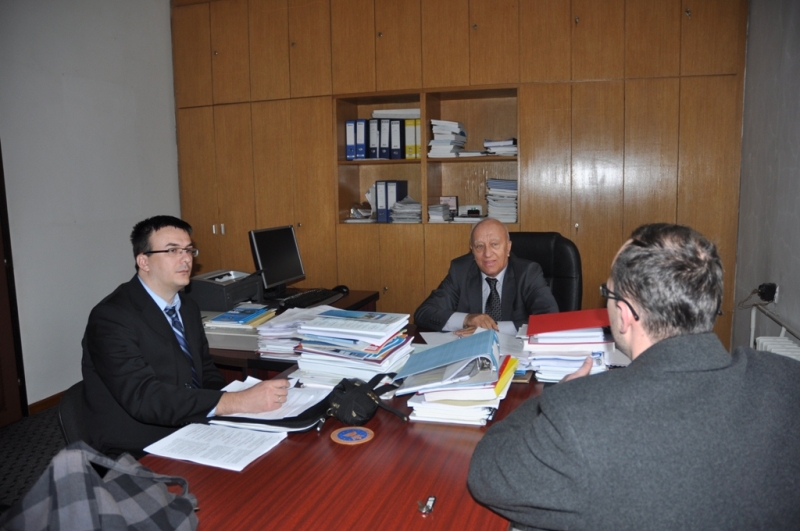On 12.01.2011. The first meeting of the working group for drafting a rulebook that will define the conditions and manner of evaluating student volunteering was held in the Rectorate of the University of Zenica. The initiative is part of the project of OKC from Banja Luka and UG Nešto Više “Get a job by volunteering-Volunteer to get a job”.
Based on the Law on Higher Education of Zenica-Doboj Canton, which in Article 136 (voluntary work) gives the University that it can regulate the conditions , manner of organization and evaluation of volunteer work through its general act, ie statute, and based on Article 189 paragraph (f) Statute of the University (Student activities) where in the prescribed workload of students in addition to active teaching, independent work, colloquia, exams and final papers leaves space for “volunteer work in the local community, organized by the University or faculty/academy/ college, on projects of importance to the local community (humanitarian activities, support for the disabled, etc.)
“provides a legal basis that student volunteering can be valued.
Red.prof.dr.Safet Brdarević, Vice-Rector for Teaching and Student Affairs, noted that there are coordinators for the allocation of ECTS credits at the University and that in the next phase it would be useful to include them. Vice-rector Brdarević mentioned that he noticed a weak interest of students in volunteering at the University, but that the evaluation could change that. It is very important that the representatives of the Student Union managed to include volunteering in the Statute of the University as part of student activites, so that only the drafting of regulations on how and which volunteering to evaluate ECTS credits and which through enrollment in diploma supplements. It was proposed to make a skeleton of the rulebook which will then be presented at the next working group to the coordinators for the allocation of ECTS credits and who will be invited to consider the offer, give their suggestions and start drafting the final rulebook which would be submitted for adoption later.
A proposal was made to try to define as clearly as possible how much student workload can be allowed during volunteering, how to plan the result and time of volunteering, and instructions to subject professors on how to plan and design volunteer engagements, all in accordance with ECTS credits.
It is interesting to note that a similar initiative is being implemented in our neighbors where the Republic of Croatia is currently preparing for the first round table on “Evaluation of volunteer work in the higher education system in the Republic of Croatia” which will include the Ministry of Science, Education and Sports.
The Ministry of the Family, Veterans’ Affairs and Intergenerational Solidarity, the Office for Non-Governmental Organizations of the Government of the Republic of Croatia, the National Commitee for Volunteer Development and the Croatian Network of Volunteer Centers in partnership with the TACSO project- Technical Assistance to Civil Society Organizations.
Source: http://www.libela.org/najave/1800-vrednovanje-volonterskog-rada-u-sustavu-visokog-obrazovanja-u-republici-hrvatskoj/

